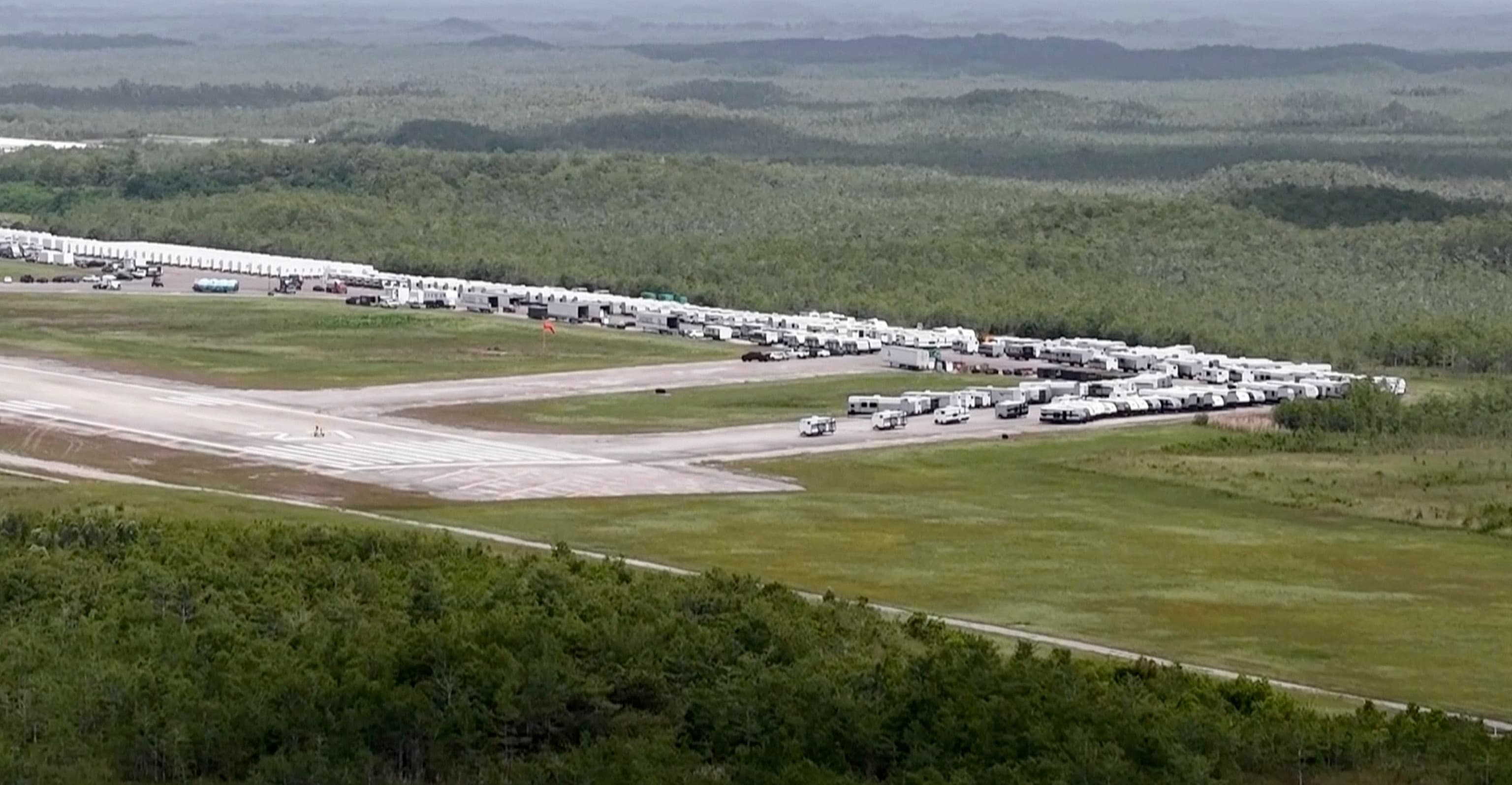Florida's "Alligator Alcatraz" Opens, Targeting 3,000 Undocumented Immigrants for Rapid Deportation

OCHOPEE, Florida – A new, controversial immigration detention facility, informally dubbed "Alligator Alcatraz," has commenced operations in the remote Florida Everglades, with hundreds of undocumented immigrants reportedly among its first detainees. Located at the Dade-Collier Training and Transition Airport, the site is designed to house and process individuals for swift deportation, a key objective of the Trump administration's immigration policy. The facility, constructed rapidly in just eight days, aims to accommodate an initial 3,000 detainees, with plans for expansion to 5,000. It features extensive security measures, including over 200 cameras and 28,000 feet of barbed wire, complemented by the natural deterrent of the surrounding swamp's dangerous wildlife. President Donald Trump, who toured the site, emphasized the facility's remote and challenging environment as a security advantage. Florida Governor Ron DeSantis and Department of Homeland Security Secretary Kristi Noem have championed the project, highlighting its role in expediting removals. Secretary Noem stated that individuals who do not "self-deport" may "end up here and being processed, deported out of this country, and never get the chance to come back." This sentiment reinforces the facility's purpose as a "one-way ticket out of the U.S.," as described in a tweet by Mario Nawfal. The "Alligator Alcatraz" has drawn significant criticism from various groups. Environmental organizations have filed lawsuits, asserting that the rapid construction violates federal environmental laws, particularly concerning the fragile Everglades ecosystem and endangered species. Human rights advocates have condemned the facility's conditions and the perceived dehumanizing nature of its remote location. Additionally, Indigenous tribes in the area have raised concerns about the impact on their sacred lands. Despite the legal and humanitarian challenges, the administration views the facility as a model for future immigration enforcement efforts across the nation. The estimated annual operating cost of the site is $450 million, with funding partially sourced from the Federal Emergency Management Agency (FEMA). The opening of "Alligator Alcatraz" underscores a strategic shift towards increased detention capacity and accelerated deportation processes in the United States.